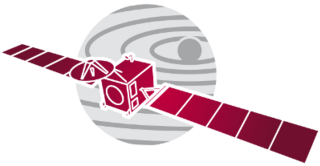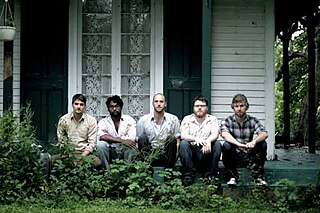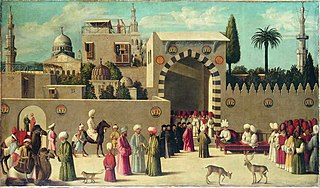
The Rosetta Stone is a granodiorite stele discovered in 1799 which is inscribed with three versions of a decree issued at Memphis, Egypt in 196 BC during the Ptolemaic dynasty on behalf of King Ptolemy V Epiphanes. The top and middle texts are in Ancient Egyptian using hieroglyphic and demotic scripts, while the bottom is in Ancient Greek. The decree has only minor differences among the three versions, so the Rosetta Stone became key to deciphering Egyptian hieroglyphs, thereby opening a window into ancient Egyptian history.

Rosetta was a space probe built by the European Space Agency launched on 2 March 2004. Along with Philae, its lander module, Rosetta performed a detailed study of comet 67P/Churyumov–Gerasimenko (67P). During its journey to the comet, the spacecraft flew three times by Earth, by Mars, and the asteroids 21 Lutetia and 2867 Šteins. It was launched as the third cornerstone mission of the ESA's Horizon 2000 programme, after SOHO / Cluster and XMM-Newton.

Antoine Isaac, Baron Silvestre de Sacy, was a French nobleman, linguist and orientalist. His son, Ustazade Silvestre de Sacy, became a journalist.

Rosetta is a port city of the Nile Delta, located 65 km (40 mi) east of Alexandria, in Egypt's Beheira governorate.

Philae is a robotic European Space Agency lander that accompanied the Rosetta spacecraft until it separated to land on comet 67P/Churyumov–Gerasimenko, ten years and eight months after departing Earth. On 12 November 2014, Philae touched down on the comet, but it bounced when its anchoring harpoons failed to deploy and a thruster designed to hold the probe to the surface did not fire. After bouncing off the surface twice, Philae achieved the first-ever "soft" (nondestructive) landing on a comet nucleus, although the lander's final, uncontrolled touchdown left it in a non-optimal location and orientation.

Granodiorite is a phaneritic-textured intrusive igneous rock similar to granite, but containing more plagioclase feldspar than orthoclase feldspar. According to the QAPF diagram, granodiorite has a greater than 20% quartz by volume, and between 65% to 90% of the feldspar is plagioclase. A greater amount of plagioclase would designate the rock as tonalite.

Rosetta is a discontinued dynamic binary translator for Mac OS X that allowed many PowerPC applications to run on certain Intel-based Macintosh computers without modification. Apple released Rosetta in 2006 when it changed the instruction set architecture of the Macintosh platform from the PowerPC to the Intel processor. The name "Rosetta" is a reference to the Rosetta Stone, the discovery that made it possible to comprehend and translate Egyptian hieroglyphs.

Rosetta Stone Language Learning is proprietary computer-assisted language learning (CALL) software published by Rosetta Stone Inc. The software uses images, text, and sound to teach words and grammar by spaced repetition, without translation. Rosetta Stone calls its approach Dynamic Immersion™.
The Raphia Decree is an ancient inscribed stone stela dating from ancient Egypt. It comprises the second of the Ptolemaic Decrees issued by a synod of Egyptian priests meeting at Memphis under Ptolemy IV of the Hellenistic Ptolemaic dynasty, which ruled Egypt from 305 BC to 30 BC. The slab dates itself to 217 BC, and celebrates Ptolemy IV's victory at the Battle of Raphia.
The Decree of Canopus is a trilingual inscription in three scripts, which dates from the Ptolemaic period of Ancient Egypt. It was written in three writing systems: Egyptian hieroglyphs, demotic, and Greek, on several ancient Egyptian memorial stones, or steles. The inscription is a record of a great assembly of priests held at Canopus, Egypt, in 238 BCE. Their decree honoured Pharaoh Ptolemy III Euergetes; Queen Berenice, his wife; and Princess Berenice.
Rosetta Stone are a British gothic rock band formed in the mid-1980s by Porl King (guitar/vocals/keyboards) and Karl North (bass), plus their drum machine and synthesizer rack nicknamed "Madame Razor".
Rosetta Stone were a Northern Irish pop rock band from Downpatrick, Northern Ireland, which included the ex-guitarist of the Bay City Rollers, Ian Mitchell. The group released two albums and one EP before dissolving in 1984.
The Sir Arthur Clarke Award is a British award given annually since 2005 in recognition of notable contributions to space exploration, particularly British achievements. Nominations for the awards are made by members of the public, with shortlists drawn up by a panel of judges, who also choose the winner. Sir Arthur Clarke chose a special award independently of the public nominations, prior to his death on 18 March 2008.

Hey Rosetta! is a Canadian seven-piece indie rock band from St. John's, Newfoundland and Labrador and led by singer/songwriter Tim Baker. Known for their energized live shows, the band created a large, layered sound by incorporating piano, violin, cello, and brass into the traditional four-piece rock setup. On October 13, 2017, the group announced via a lengthy Facebook post that they would be taking an indefinite hiatus.

Rosetta is an American post-metal band from Philadelphia, Pennsylvania incorporating elements of post-hardcore, shoegazing, drone, post-rock, avant-garde and ambient, with influences as diverse as Neurosis and Isis, My Bloody Valentine, Frodus, and Stars of the Lid. The band somewhat humorously self-describes its music as "metal for astronauts", and its members are very interested in astronomy and space travel.
The Rosetta system-level specification language is a design language for complex, heterogeneous systems. Specific language design objectives include:

Rosetta Stone Inc. is an education technology software company that develops language, literacy and brain-fitness software. Best known for its language-learning products, in 2013 the company expanded beyond language into education-technology with its acquisitions of Livemocha, Lexia Learning, Fit Brains, and Tell Me More.

The Rosetta Foundation is a nonprofit organization that promotes social localisation, i.e. making information available to individuals around the world irrespective of their social status, linguistic or cultural background, and geographical location.

Rosetta Stone v. Google, 676 F.3d 144, was a decision of the United States Court of Appeals for the Fourth Circuit that challenged the legality of Google's AdWords program. The Court overturned a grant of summary judgment for Google that had held Google AdWords was not a violation of trademark law.













